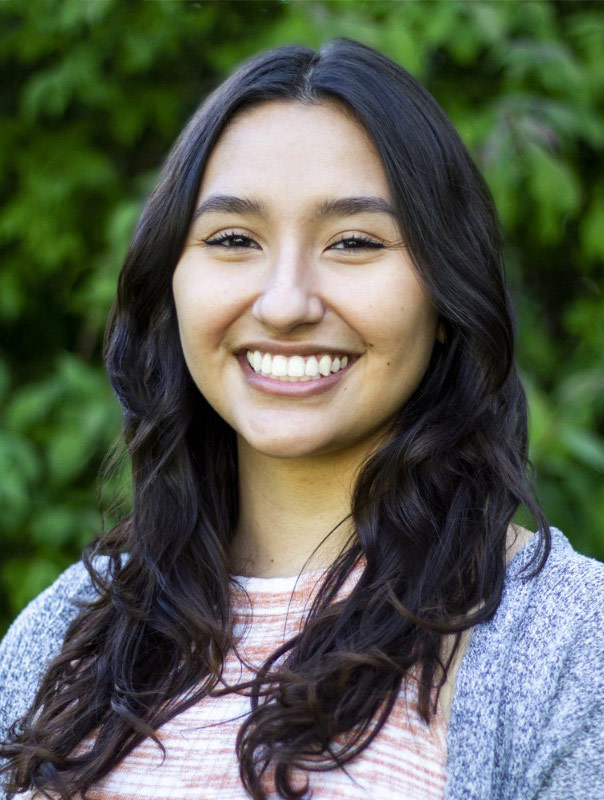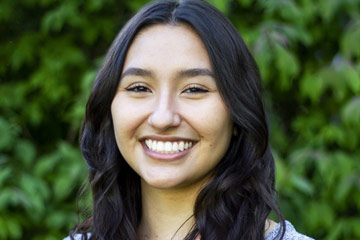
Program: Physics PhD
Year: Second year
When Ayesha Gonzales received a prestigious NSF Graduate Research Fellowship this year for her work in Associate Professor Michael Hinczewski’s lab, it came as no surprise to those around her.
“With Ayesha’s machine learning expertise, the sky’s the limit,” said Hinczewski, pointing to her contributions to their work researching methods for sickle red blood cell detection. Gonzales—who started her PhD program in the middle of the pandemic—”hit the ground running” as an accomplished researcher, and credits Case Western Reserve for offering the support she needed.
But the second-year PhD student didn’t always know she had a passion for physics. After considering careers in writing and psychology, Gonzales found herself uninterested in the material and less excited about readings than she was about other subjects. It was the need to create equations to solve problems in physics that caught her attention.
“It took me a while to figure out that physics was my dream,” Gonzales said. “But once I did, it felt so obvious that I didn’t even try holding onto other things I thought I should do.”
Gonzales had this realization while attending the University of Texas Physics Symposium during her senior year of high school, but faced hurdles when her high school counselor, parents and peers questioned her commitment. And, at the time she was applying for college, financial restrictions led her to enroll at St. Edward’s University, an institution that doesn’t offer physics as a major.
Despite all of this, Gonzales remained undeterred. She made the decision to major in math, figuring she could use those skills to pursue her physics career down the road.
“I was excited to prove everyone wrong who thought that I would end up changing my mind,” Gonzales said.
Since then, Gonzales has done just that. She participated in a research project at the Rochester Institute of Technology in 2018 that introduced her to machine learning and computer vision, and knew she wanted to incorporate machine learning into her research long term.
She’s now part of an impressive team dedicated to the subject—three alumni of the Department of Physics were awarded NSF Graduate Fellowships this year as well: Joshua Chiel (CWR ‘20), Rebecca Lalk (CWR ‘20) and Theodore Letsou (CWR ‘19).
“Having four NSF Graduate Fellowships associated with CWRU physics in one year reflects very positively on our department, our undergraduate and graduate academic programs, and on the many mentors and research supervisors who have guided these students while here at CWRU,” Glenn Starkman, co-chair of the department said. “But most of all, it reflects the extraordinary quality and dedication of our students—not just those who were awarded this very competitive fellowship but all who did the hard work to apply.”
For Gonzales, though she once was unsure of her interest in physics, she’s now dedicated herself to sharing her passion. She’s served as a tutor since 2017, helping young students connect with subjects such as math and grow their skills as they find excitement applying them.
“It’s important to me to reach out to those people who aren’t really represented in STEM at a young age,” Gonzales said.
We look forward to seeing what Gonzales accomplishes next.

